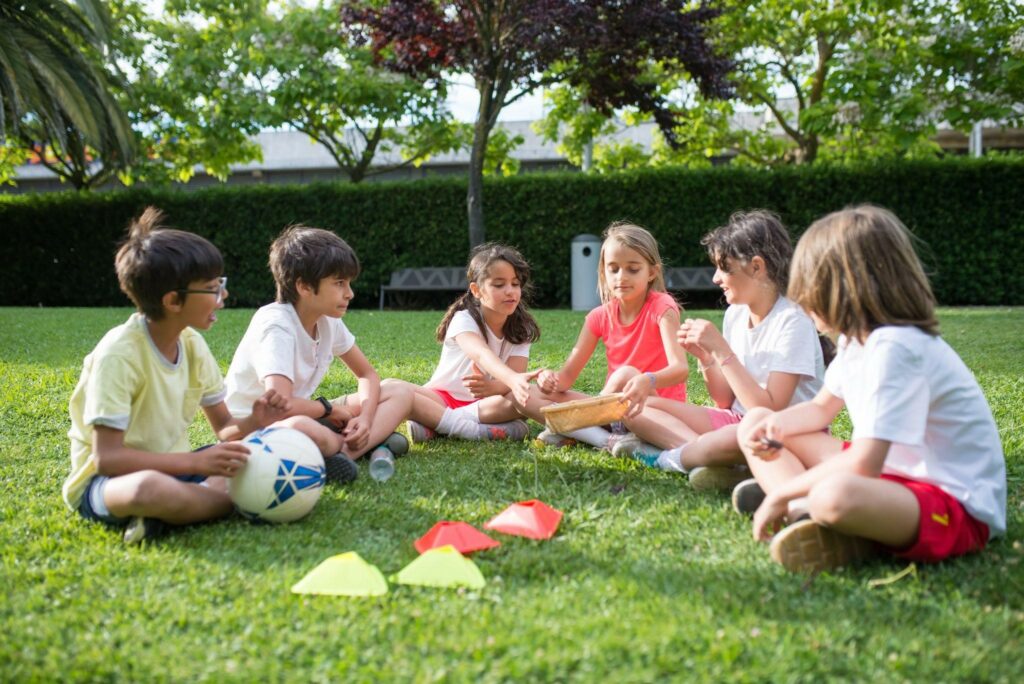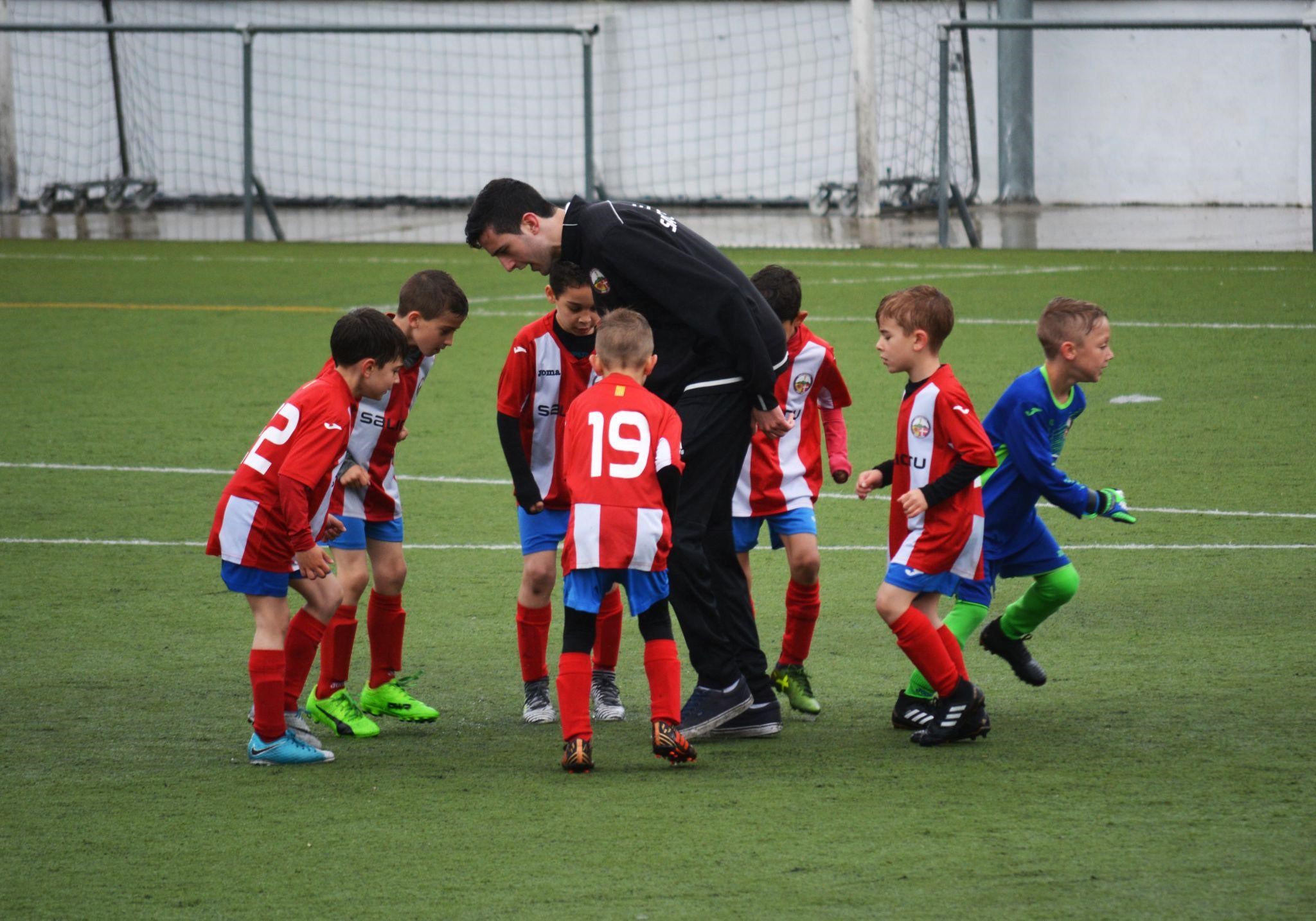It’s no secret that children and teens are full of infinite energy and keen to release it through running, jumping, and playing. So, why not invest this natural energy into something more useful and interesting? Transmitting the usual power and enthusiasm to sporting competitions is a great way to keep teens lively and in good shape as they grow, eliminating the risks of abominable behavior.
Competitive sports activities such as football, running, boxing, cycling, and rowing require some essential skills in contrast to playing entertaining games at no-wagering casinos, including the ones from this top list https://play-fortune.pl/kasyno/bez-obrotu/. As such, these activities help kids not only to master some logical and physical skills but also to grasp valuable lessons about fellowship, impartiality, and cooperation.
So, let’s take a quick look at the key benefits and advantages anyone engaged in competitive games and events can get.
#1 Building Discipline
Ask any successful person about the key to their big success, and they’re likely to mention hard work and discipline. Indeed, discipline is a vital foundation for any competitive sport, and it is also an essential factor to succeed in other areas of life.
In general, almost all types of competitive games demand dedicated training and regular practice, laying the base for discipline. Taking part in such training and witnessing improvement helps kids to understand that with devoted work often comes great results. When they experience good results, their self-assurance grows, making them broaden their expectations of what they can achieve.
Moreover, apart from building discipline, kids learn to define goals and set objectives through competitions. This is another vital skill that can be applied across all areas of life and schooling.
#2 Improving Self-Esteem
The next huge advantage that competitive sporting events can bring to children is better self-respect and self-recognition. Every time a kid wins a competition, he gets a sense of achievement and feels recognized. And whenever he loses the game, he learns an important lesson: winning every single time is impossible.
Losing the game with the team can also boost confidence as children learn to stay positive and be proud of trying their best.
#3 Understanding the Value and Gains of Sports
Nothing comes without value. Any pastime activity, be it simple exercising, playing, singing, or drawing, brings some valuable rewards and gains. For example, when playing casino games, one can easily get some juicy bonuses and a casino cashback promotion. Sporting competitions, on the other hand, help thousands of children and teenagers fight and deal with such crucial issues as overweighting. More precisely, taking part in such sports and activities leads to calorie burning and prevents obesity as well as other serious health problems like diabetes.
In addition, most kids who are relatively active in sports are keener to lead a healthy lifestyle.
#4 Developing Social Skills

Engaging in competitive sports events gives a person a sense of belonging and being an essential part of a group or team. Team members interact with each other in a friendly manner and develop basic social skills. They learn to consider and respect the opinions and interests of their peers and practice mutual understanding and cooperation.
Children train together, share most of their time and other resources, and learn to cope with failure and success as a team. These essential interactions facilitate friendship bonding with other schoolmates and make children more sociable and easy-going as they grow.
#5 Learning How to Compete
Engaging in competitive sports is an effective way to teach children and teens all the key nuances of competing in the real world. During their lives, they’ll face various competitions in almost every stage of life: in school, in the workplace, in relationships, and so on.
These competitions, however, don’t necessarily have to be harmful or negative. Playing competitive games can help to understand how competition works in a positive and friendly atmosphere, motivating them to try their hardest to get a better chance of succeeding.
#6 Developing Physical Activity
It is indeed possible to take part in physical activities in a non-competitive environment, and most people do so regularly. However, in sports events with great competition, participants often push themselves several times harder in practice and matches. As a result, this extra effort leads to better fitness levels and helps children stay in great shape.
In addition, sporting competitions are also a great option to extend one’s boundaries and limitations about their perception of what exactly they are physically capable of.
#7 Decreasing The Risk of Negative Influences
According to the President’s Council on Sports, Fitness, and Nutrition, kids who take part in competitive games are less likely to walk the wrong path and commit crimes. Engaging in such activities greatly reduces the amount of unsupervised leisure time and prevents boredom. This, in turn, makes options such as drinking, drugs, and smoking less appealing.
Moreover, competitive sports activities and games provide a great space for companionship and repressed aggression. So, children who have beneficial impacts and friend circles have less of an urge to take part in dangerous activities.
But What About Drawbacks, Aren’t There Any?
You will surely wonder if competitive sports are all about good and positive things. Well, there is no single thing in this world that carries only benefits and has no vulnerable spots. Competitive sports and events aren’t exceptions as well. When taking part in various competitions and games, children, from time to time, can face such problems as increased stress, pressure, unwanted rivalry, and injuries.
However, when playing with passion and regarding sporting competitions as a great opportunity to improve and develop both physical and mental health, the little problems popping out during the journey will surely not become a stumbling stone to anyone’s success.



